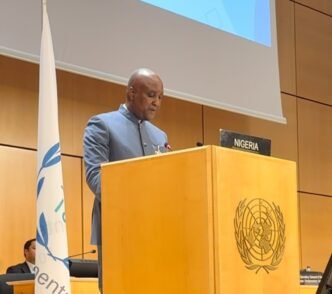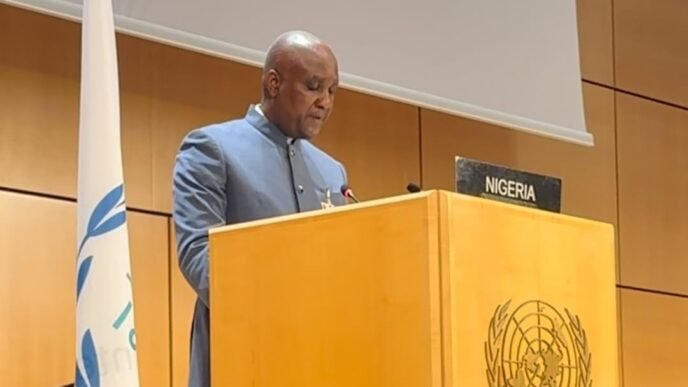HB. 2058-A BILL FOR AN ACT TO ALTER THE CONSTITUTION OF THE FEDERAL REPUBLIC Of NIGERIA, 1999 (AS ALTERED) TO PROVIDE FOR MANDATORY PERIODIC CONDUCT OF POPULATION CENSUS; AND FOR OTHER RELATED MATTERS. Bill Sponsored by Hon. Benjamin Okezie Kalu and six others. Bill progress: Committee Stage.
This Bill seeks to alter section 213 and Part I of the 3rd Schedule, item J of the
Constitution to provide for the conduct of population census every ten years after the publication by the President of a population census report.
The ongoing discussions surrounding population census in Nigeria have taken a significant turn with the introduction of HB. 2058, a bill currently being examined by the House of Representatives. Officially titled “A Bill for an Act to Alter the Constitution of the Federal Republic of Nigeria, 1999 (As Altered) to Provide for Mandatory Periodic Conduct of Population Census; and for Other Related Matters,” this legislation seeks to enforce a constitutional mandate for the regular and systematic conduct of population censuses across the nation.
One of the primary objectives of HB. 2058 is to instill a constitutional provision that would make population census not just a recurring event but a legally mandated requirement. This move is seen as crucial in addressing the longstanding issues regarding the reliability and availability of population data in Nigeria. Given that accurate demographic statistics are fundamental for effective governance, resource allocation, and electoral representation, the introduction of this bill comes at a pivotal moment in Nigeria’s quest for improved data management and planning.
Currently, the 1999 Constitution of the Federal Republic of Nigeria does address the issue of population census, albeit in a limited manner. For example, Section 75 refers to using population data to ascertain electoral constituencies, indicating that census figures from previous years, namely the 1991 census, can be utilized for this purpose. However, this reliance on older census data has raised concerns over accuracy and relevance, especially given the country’s dynamic demographic shifts.
Furthermore, Section 213 of the Constitution outlines the procedure for the National Population Commission (NPC) to deliver its census findings to the President. It stipulates that after obtaining advice from the Council of State regarding the report’s acceptance or rejection, the findings must be presented before the National Assembly and published in the official Gazette. Despite these outlined procedures, the irregular conduct of censuses has historically led to a lack of trust in the data produced, hampering effective policy-making and planning.
The establishment of the National Population Commission is enshrined in the Third Schedule, Part I, Item 24 of the Constitution. This section outlines the NPC’s role, which encompasses undertaking population enumeration through various methodologies, including sample surveys and censuses. However, there remains a significant gap when it comes to defining the frequency and mandatory nature of these enumerations, leading to inconsistencies and controversies surrounding census timing, execution, and data accuracy.
One of the notable motivations behind proposing HB. 2058 is the recognized need for regular and transparent census exercises, which are critical for national planning. A more predictable census schedule would not only facilitate better resource allocation across sectors such as education, healthcare, and infrastructure but also enhance the legitimacy of electoral processes by ensuring fair representation based on current population demographics. The infrequently held censuses, sometimes mired in political contention, often provoke disputes that can sidetrack developmental agendas.
By specifying a fixed periodicity, the bill aims to address the vagueness currently present in the constitutional language regarding population enumeration. Installing a definitive timeframe—potentially every 10 years, as suggested by various stakeholders—could standardize expectations and improve preparedness for subsequent censuses. This approach would also work to curb the discretionary power that has occasionally led to the postponement or outright cancellation of census activities, primarily tied to political motivations or inadequate preparation.
Moreover, the proposed legislation seeks to make the conduct of population census “mandatory.” This aspect would reinforce the requirement imposed on the NPC and other relevant bodies, ensuring that obstacles hindering timely census execution are systematically eradicated. The call for mandatory census activities reflects a critical understanding that demography plays a tangible role in national identity and governance, making it essential for all citizens to be counted accurately and duly represented.
In addition to the primary goals of instituting mandatory and periodic censuses, HB. 2058 contains provisions that may tackle other relevant matters. These could include enhancing the financial independence of the National Population Commission, improving its operational efficiency, and clarifying regulations regarding the use of census data for various national purposes. Effective allocation of resources for census activities would aid in reducing the financial constraints that often impede proper enumeration.
The potential implications of this bill are profound. By strengthening the constitutional framework governing population census activities, HB. 2058 seeks to ensure that Nigeria moves towards a more transparent and accountable demographic data collection process. This move could pave the way for informed policy-making, equitable resource distribution, and enhanced democratic representation throughout the country.
In conclusion, as the Nigerian House of Representatives deliberates on HB. 2058, the discussion is not just about altering the Constitution; it is about fortifying the foundation upon which national development can take place. Ensuring regular and accurate population census is fundamental to instigating meaningful changes that will propel Nigeria into a future defined by data-driven decision-making and proactive governance. With this legislation, there lies an opportunity to embrace a new era of demographic reliability, where every citizen counts, and their data serves as the cornerstone for national progress.












